With the success of The 7th Voyage of Sinbad, it was clear to Ray Harryhausen that tackling legendary adventures not only opened up whole new worlds of creativity it was also quite lucrative and if a journey into the tales of the Arabian Nights worked so well it was only natural that Harryhausen would then turn to the legends of Greek mythology for inspiration.
When it comes to adapting a book, or worse an actual historical event, no matter how good the film turns out in the end there will still be people out there who will gladly point out any deviation from the source material you made or the specifics surrounding the actual events being depicted, but in the case of Jason and the Argonauts Ray Harryhausen was dealing with stories based on Greek mythology and with that kind of subject matter a filmmaker is going to have a much greater amount of leeway when it comes to adapting as there have been many versions and interpretations of these stories over the years, especially considering these tales date back to 3rd century BC, and thus a filmmaker could rightfully assume not to hear from any disgruntled author about what had been done to his work.
Fearing the wrath of Zeus or Hera is another matter altogether.
That all said, when Ray Harryhausen and company sat down to create the mythical journey of Jason and the Argonauts quite a few liberties were taken from those classic tales, strangely enough, this resulted in a far better story than one could have hoped for. So, let’s take a journey back a few thousand years and see how Ray Harryhausen took the mythic tale of Jason and the Argonauts to the big screen and how it stacks up against the myths he based them on.
Like any other great Greek epic, the story of Jason begins with a power-hungry asshole murdering anyone who stands in his way, for this tale we have Pelias (Douglas Wilmer), a son of Poseidon, who usurps the throne of Thessaly, killing King Aristo, but the wrinkle in his conquest is in the knowledge of a prophecy that states an heir to the throne will someday end his reign, so he plans to murder all of Artisto’s children, he of course fails. Twenty years later Jason (Todd Armstrong), the rightful heir to Thessaly, saves the life of Pelias from drowning, not knowing that this is the man who killed his entire family. Having been earlier tipped off by the goddess Hera (Honor Blackman) that if he were to harm Jason things would go badly for him, stating to “Kill Jason, you kill yourself” so he’s quite open to the idea of Jason sailing off to the ends of the Earth to find the mythical Golden Fleece, which the young man believes will free Thessaly from the evil usurper.
“If you could die along the way, that would be a big help.”
After a quick visit to Mount Olympus, where Zeus (Niall MacGinnis) informs Jason that Hera can only offer aid on this journey five times, this being the number of times Jason's murdered sister Briseis called on Hera for protection, he then toddles off to meet with a boat builder called Argus (Laurence Naismith), whose ship Jason then quickly names after the builder, a contest is then held to see what heroic Greeks are worthy to join in on this amazing quest. The most notable member of the crew is Hercules (Nigel Green), whose legendary strength makes him an Argonaut without even having to enter the games, but also joining the crew is Acastus (Gary Raymond) who, unknown to Jason, is the son of Pelias and has been sent by his father to sabotage the voyage and hopefully end the threat of Jason once and for all. Jason and the Argonauts quickly set sail and this also sets them on a path that diverges greatly from their mythical counterparts. Running low on provisions Hera guides them to the island of the Isle of Bronze but warns Jason to take nothing but provisions, which Heracles quickly ignores by stealing some treasure located in a building surmounted by a gigantic bronze statue of Talos, and soon he and his compatriots are running from a towering bronze giant.
Behold, the awesomeness that is the mighty Talos.
Myth Note: The confrontation with Talos was not their first travail of our heroes as they actually encountered him on their return journey after having obtained the Golden Fleece, and he was not defeated by Jason but by the sorceress Medea. Also, Talos was not located on the Isle of Bronze, instead, he guarded the Isle of Crete and was protecting Queen Europa, not treasure. As to Talos’s appearance here, in the myth, he was a giant automaton but not on the scale depicted by Ray Harryhausen, who took his inspiration from the Colossus of Rhodes.
Talos would make an awesome goodwill ambassador.
Next on the itinerary is a trip to Thrace to seek out Phineus (Patrick Throughton), who Hera says can inform them on how to reach Colchis where the Golden Fleece is to be found, but as Phineus has spent the last few years being tormented by a pair of Harpies, sent by Zeus as punishment for his abusing of the God's gift of prophecy, he now has no interest in helping the gods or anyone connected to them, lightning bolts be damned. Jason makes a deal with the Phineus and he and his crew are able to capture the harpies thus Phineus tells them that to get to Colchis they must sail between the Clashing Rocks. He also gives them a totem that will aid their passage through this dangerous obstacle, and it should be noted that this totem may represent Triton, son of Poseidon or possibly Nereus, the eldest son of Gaia. In either case, he looks like the mascot for a seafood restaurant.
This guy could certainly kick Captain Highliner’s ass.
Myth Note: Whether the seafaring god depicted in the movie was Triton or Nereus neither of them aided Jason with the Clashing Rocks. According to the myth, Phineus had instructed Jason to release a dove and if the bird made it through, they should row with all their might and the goddess Athena would provide the extra push they'd need to clear the Clashing Rocks.
The harpies and their like were much better than some dude with a fishtail glued on.
After making their way safely between the Clashing Rocks the Argonauts rescue a survivor from the ship that earlier had failed to pass between those titanic rocks, this survivor was the beautiful Medea (Nancy Novack), the high priestess of Colchis, who is this film’s very late arriving love interest. It’s at this point that the devious Acastus shows his true colours and after a failed attempt at killing Jason he simply jumps ship only to later appear in the court of King Aeëtes, having told the ruler of Colchis of Jason’s intention to steal the Golden Fleece. Jason and the Argonauts are quickly seized and locked up in the palace dungeon, but not for long, as Medea is now madly in love with Jason, and she drugs the guards, helps them escape, and aids them in retrieving the Golden Fleece. It’s during the film’s last act, battling the Hydra and a group of nasty skeletons, that what remains of the myth is pretty much thrown out the window in favour of a quick and exciting finish.
Correct me if I'm wrong, but shouldn’t it be Hercules fighting the Hydra?
Myth Note: In the original tale, Jason was not betrayed by Acastus, having openly told King Aeëtes that he had come for the Fleece the King promised Jason that he could have it if he performed three tasks, knowing full well they were impossible, but with the aid of Medea’s magic he was able to accomplish them all, and it was not the Hydra that protected the Fleece, as depicted in the movie, but rather a dragon and Jason was not the vanquisher, as once again, it was Medea who cast a spell on it, causing it to fall asleep.
"Could I get a little help here?"
After Jason defeats *cough cough bullshit* the Hydra by piercing its heart – it should be noted that though this version of the Hydra does have multiple heads it doesn’t have poisonous blood or the regenerative abilities it is known for – but as the Argonauts make off with the Golden Fleece King Aeëtes and his men show up to spoil their escape, with the King sowing the Hydra's teeth into the ground and praying to the goddess Hecate for help. This help comes in the form of seven armed skeletons, the "Children of the Hydra's teeth," and they emerge and attack our heroes, who to be fair, were making off with stolen property so I kind of sympathize with Aeëtes here. What follows is a pretty boss fight between Jason and his companions against seven lethal skeletons, with Jason being the only survivor as he is forced to jump off a cliff to the sea below to escape their skeletal grasps.
Movie Note: It took Ray Harryhausen four months to animate the skeleton fight sequence, which only runs about three minutes in length, but the end result was one of the most incredible pieces of film ever produced.
Aboard the Argo, the few surviving Argonauts, those who stayed aboard their boat and didn’t die at the hands of the “Children of Hydra’s Teeth,” celebrate their victory while readying themselves for the long journey back to Thessaly, meanwhile, back at Mount Olympus Zeus informs Hera that “For the moment, let them enjoy a calm sea, a fresh breeze and each other. The girl is pretty, and I was always sentimental. But for Jason, there are other adventures. I have not finished with Jason. Let us continue the game another day.” This was definitely a good place to end the movie because things don’t go all that well for our heroes after this.
“Zeus, how about we go a little hardcore on these two lovebirds?”
Myth Note: It is odd that the film ends without Jason reclaiming his throne, or Pelias getting his comeuppance, but if the filmmakers were to follow the myth even remotely it would have gotten rather nasty and not something you’d expect to see on a Saturday afternoon matinee. In the myth, Medea uses sorcery to trick Pelias' daughters into chopping him up into bloody pieces and boiling them in a cauldron of water and magical herbs, claiming that this will add years to their father’s life, but Medea did not add the magical herbs required for this to work and thus Pelias is simply dead and Acastus, who in the movie dies in the clutches of the Hydra but here in the myth drove Jason and Medea into exile for his father’s murder. But it gets worse, Jason gets engaged to a Corinthian princess, despite his promise to marry Medea, so the spurned sorceress presents the bride-to-be with a cursed dress, as a wedding gift, that is then stuck to her body and burns her to death as soon as she puts it on. And if that’s not dark enough, Medea then killed her two sons that she bore with Jason, fearing that they would be murdered or enslaved because of their mother's actions, in fact, this film also omitted the story of Medea killing and butchering her own brother to help Jason and the Argonauts escape, and this really has me wanting to see a darker take on this classic myth.
“Tonight on Evil Housewives of Thessaly.”
Stray Observations:
• Pelias is told by the gods that if he kills Jason, he himself will die, so he sends his son Acastus to join the Argonauts to ensure that Jason never returns, but if simply having someone else do the killing skirts the prophecy why not have some random guard stab Jason the second he walked into camp?
• There have been many cinematic incarnations of Hercules over the years but the one found here isn’t your typical muscle-bound athlete, but is portrayed by a wonderfully bearded Nigel Green.
• As the goddess Hera deeply hated Hercules, the bastard son of her philandering husband, it’s odd that she would have helped a crew who had him as a member.
• Hera tells Jason that it is Talos’s ankle that is his vulnerable spot, but it was his heel that Jason uncorks to defeat the bronze giant. Who said gods are infallible?
• Composer Bernard Herman tended to borrow from himself quite a bit and thus the music theme for Talos coming to life is almost identical to that of Gort coming to life in The Day the Earth Stood Still.
• One of the skeletons' shields was adorned with the design of the head of the Ymir from the Ray Harryhausen film 20 Million Miles to Earth.
• The temple and dancers of Hecate have a distinctive and darkly beautiful feel to them that is very reminiscent of the Mario Bava film Hercules in the Haunted World which came out a couple of years earlier.
The ancient Greeks really knew how to party.
The filmmakers may have been a little fast and loose with those Greek myths but this film was more about showcasing Ray Harryhausen’s extraordinary skills as an animator and creature creator than it was in giving the viewer Cole’s Notes version of Greek mythology, and on that score, this movie succeeded better than one’s wildest dreams, sadly, though the film is now considered a classic it was a box office disappointment during its initial release and its financial failure was the real reason we never got further adventures with Jason and the Argonauts. Overall, this movie was an amazing feat of filmmaking and though it may have diverged from the actual myths it was based on, one has to admit, in many places Ray Harryhausen improved on them, making this one of the greatest fantasy films of all time, and it also wouldn't be his only foray into Greek mythology.
Note: Ray Harryhausen would return to the world of Greek mythology for his final film, Clash of the Titans, a movie that strayed even further from the myths than this one, but once again, still rather fun.
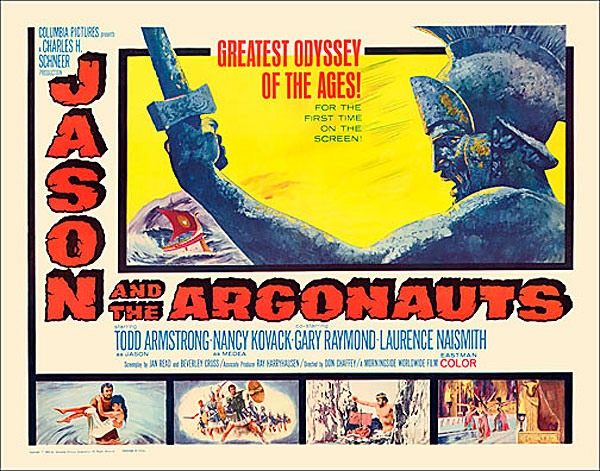
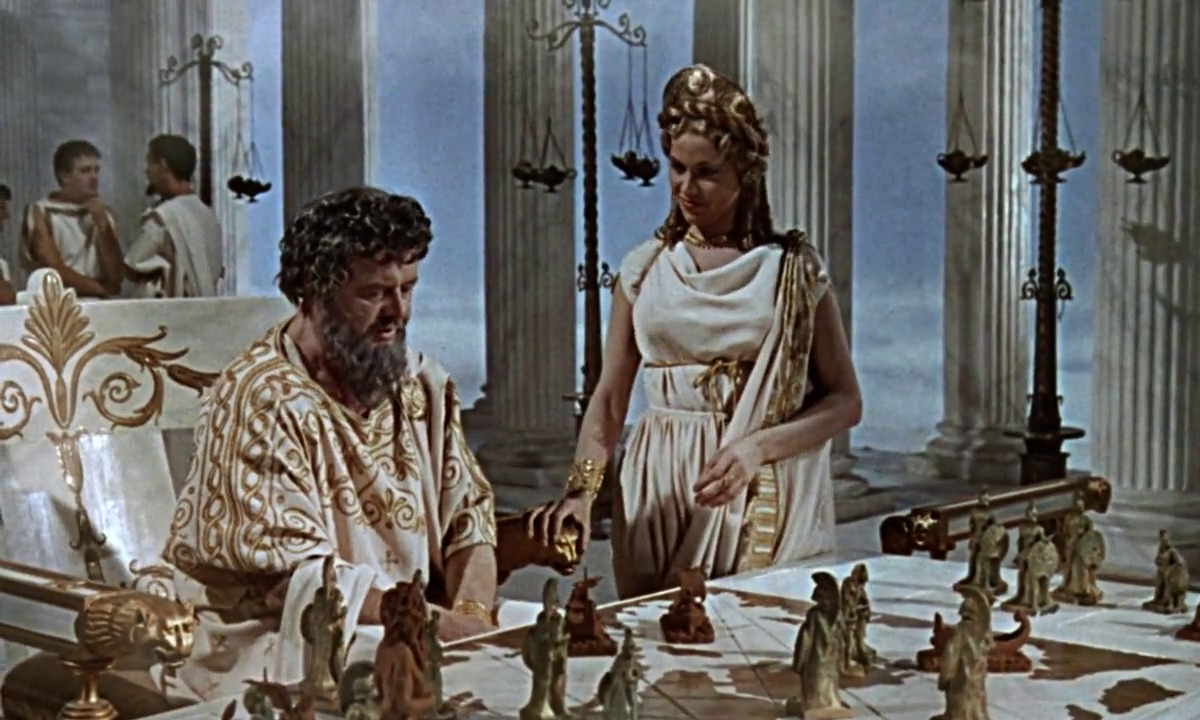
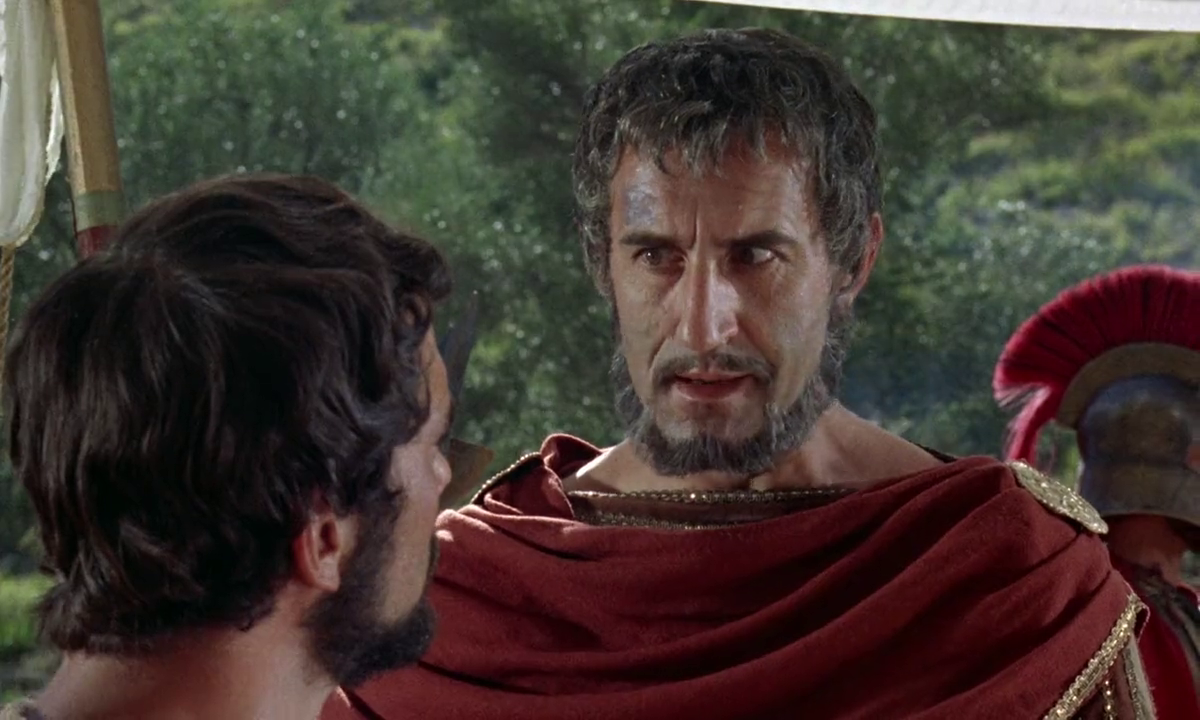
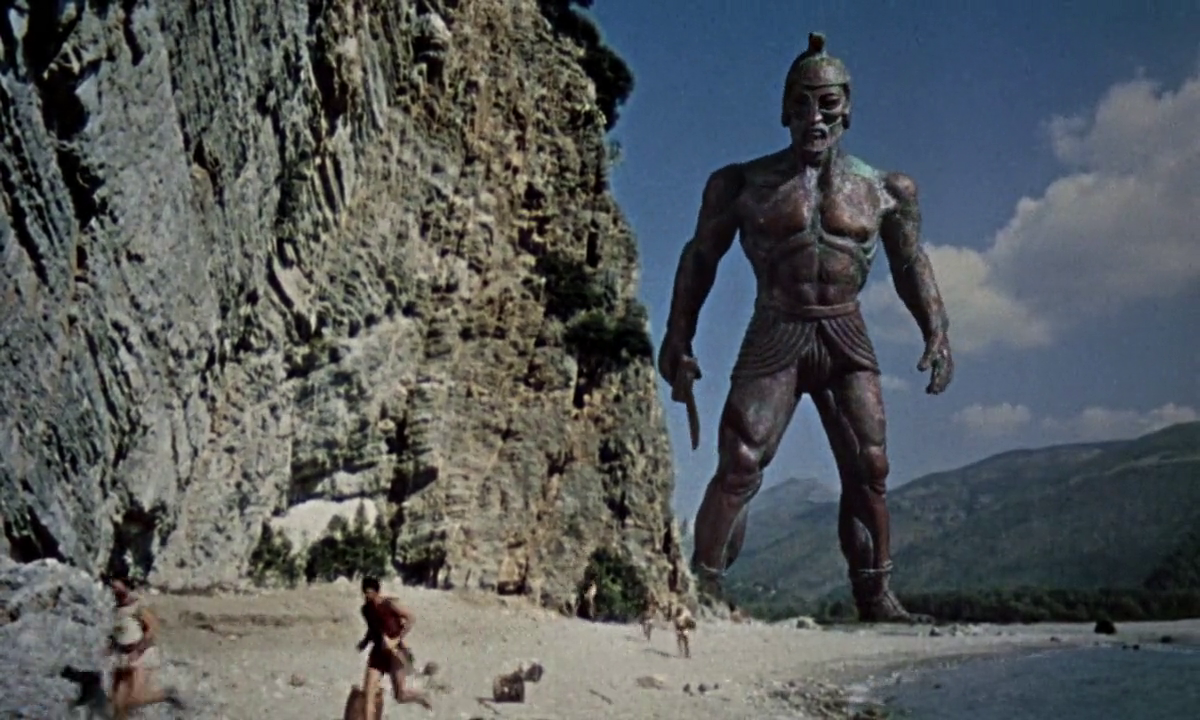
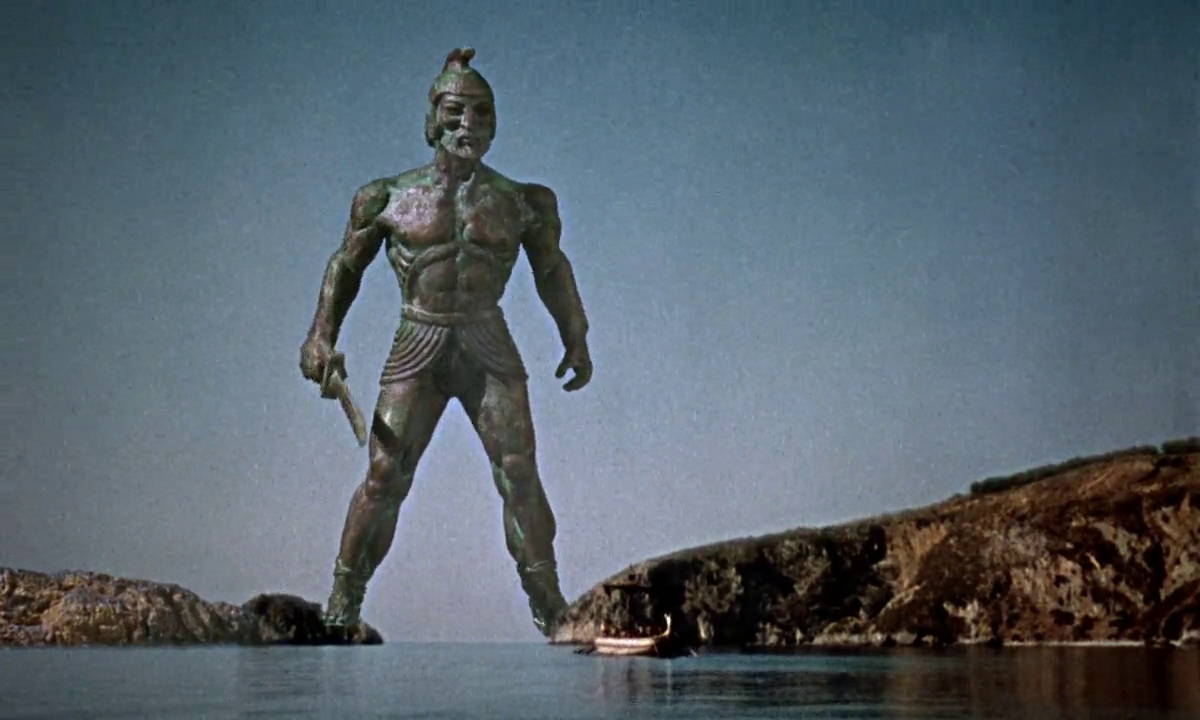
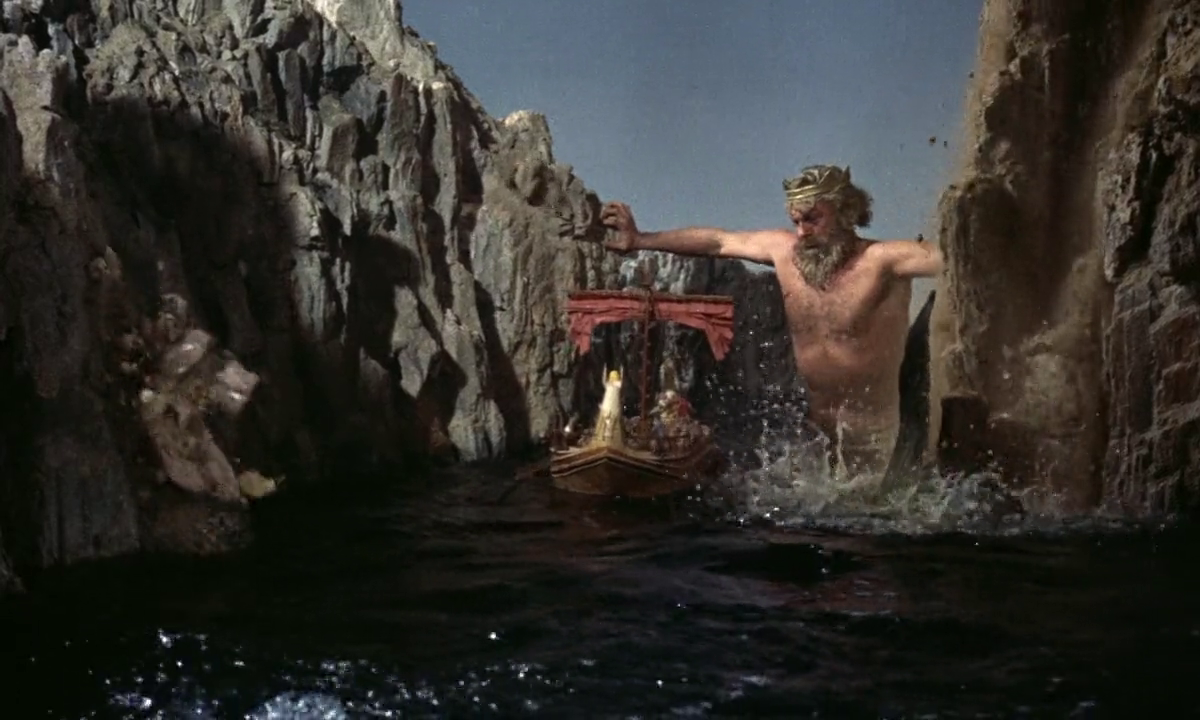
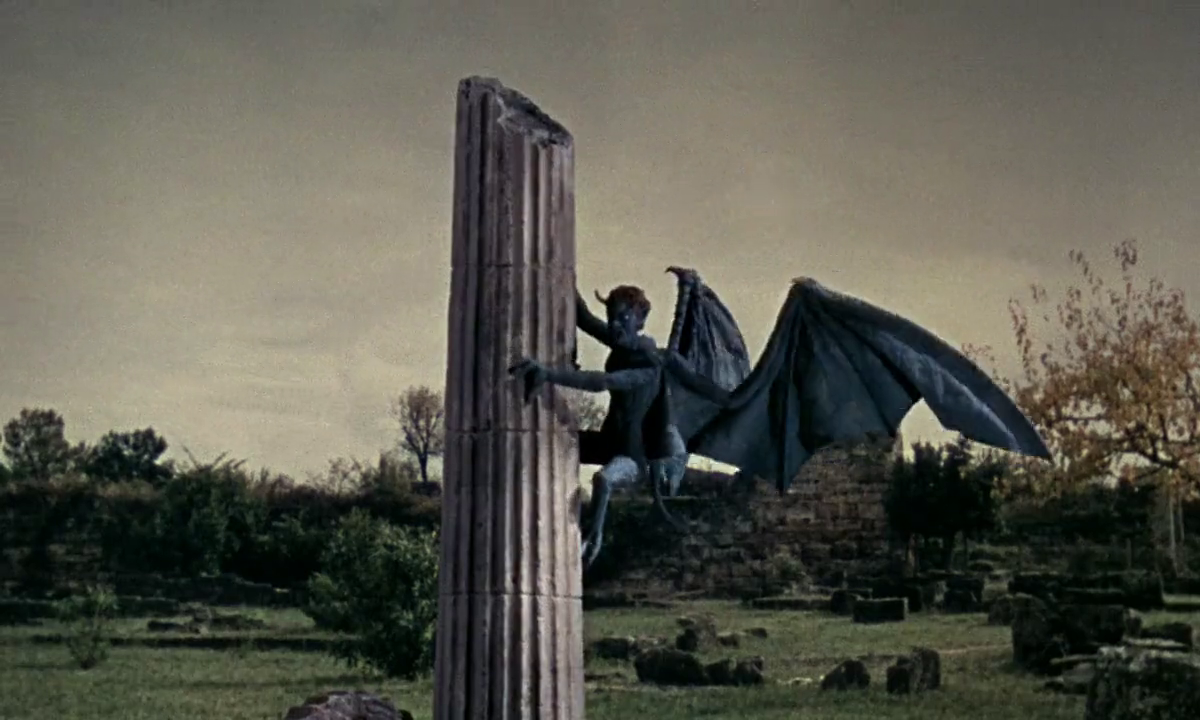
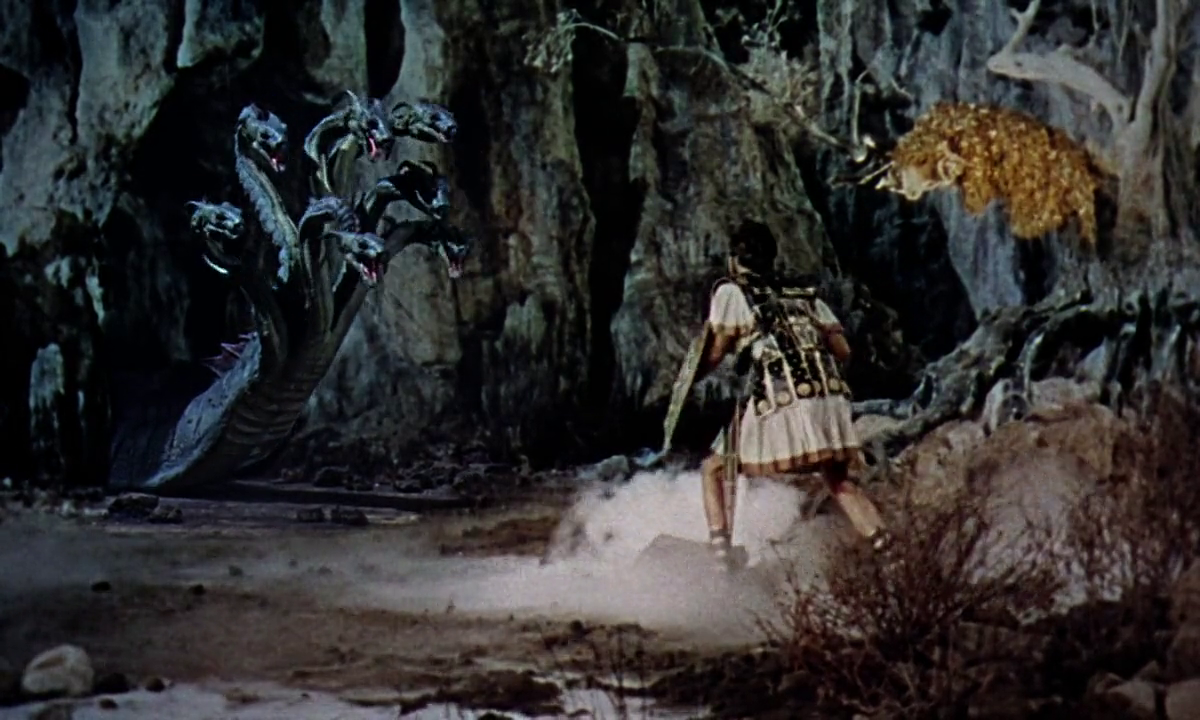
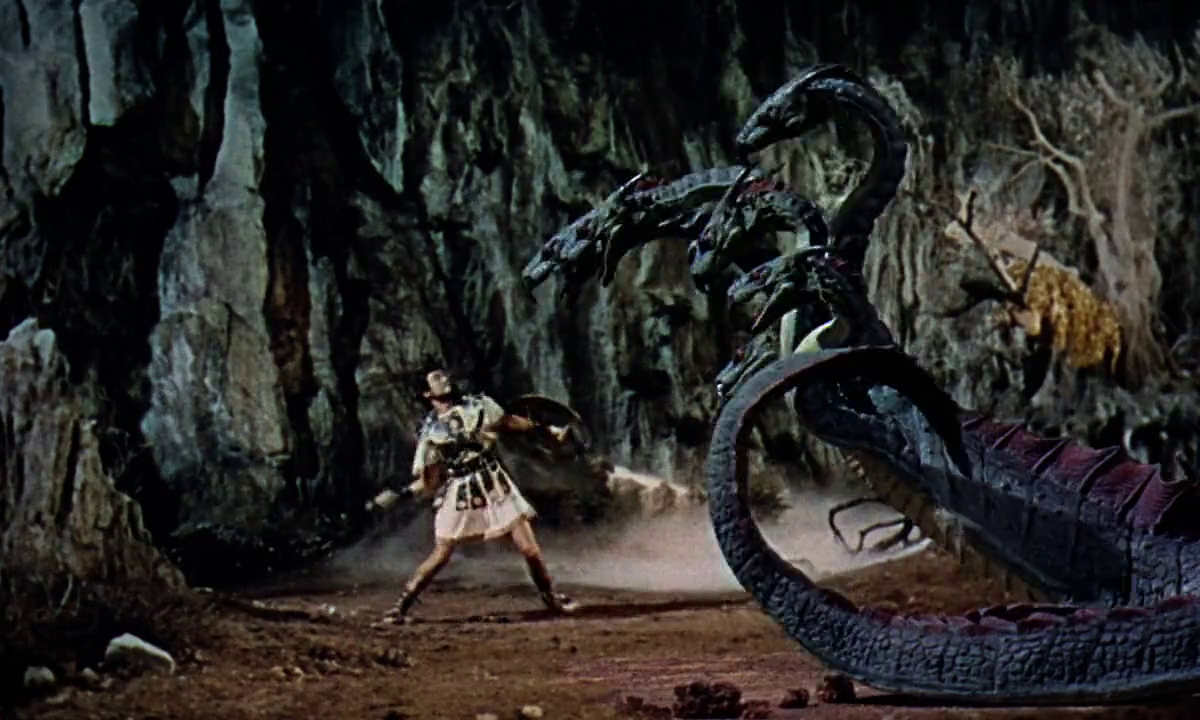
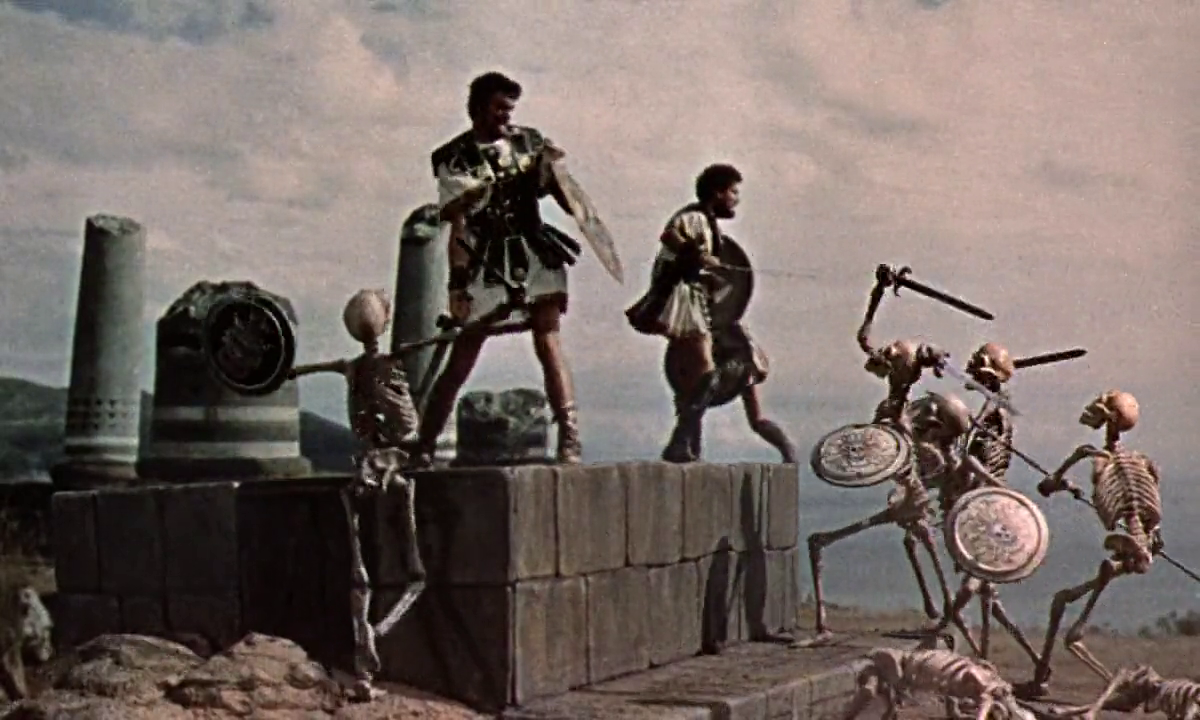
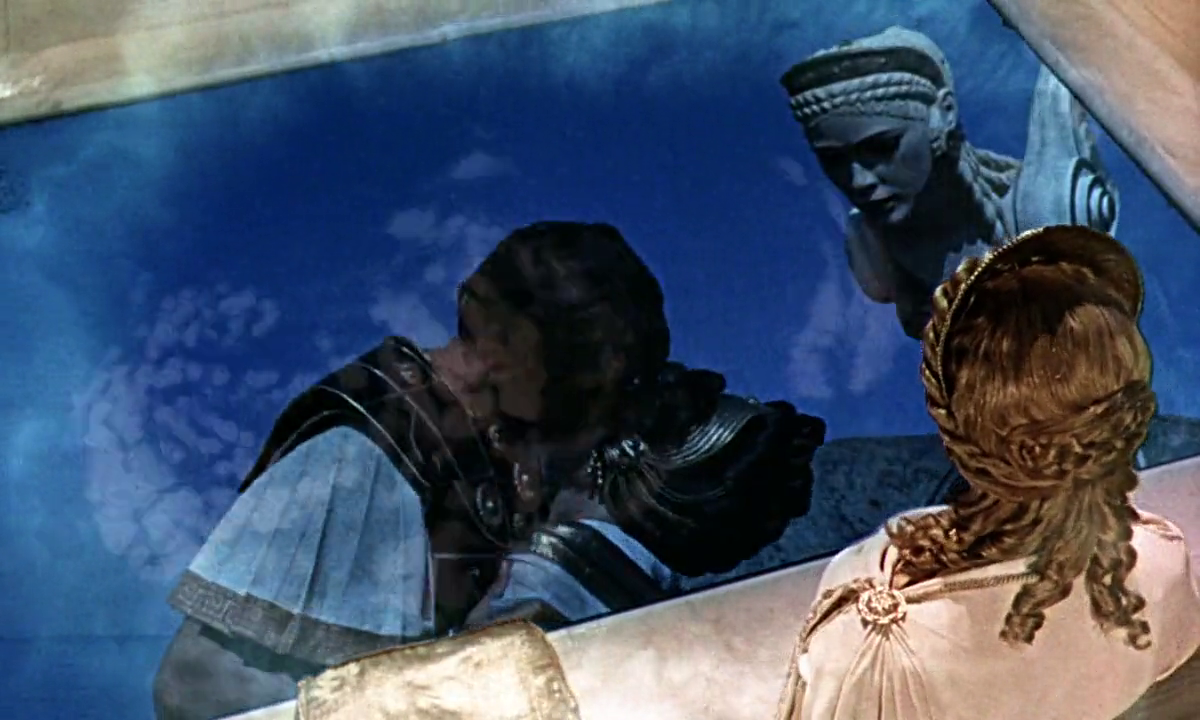
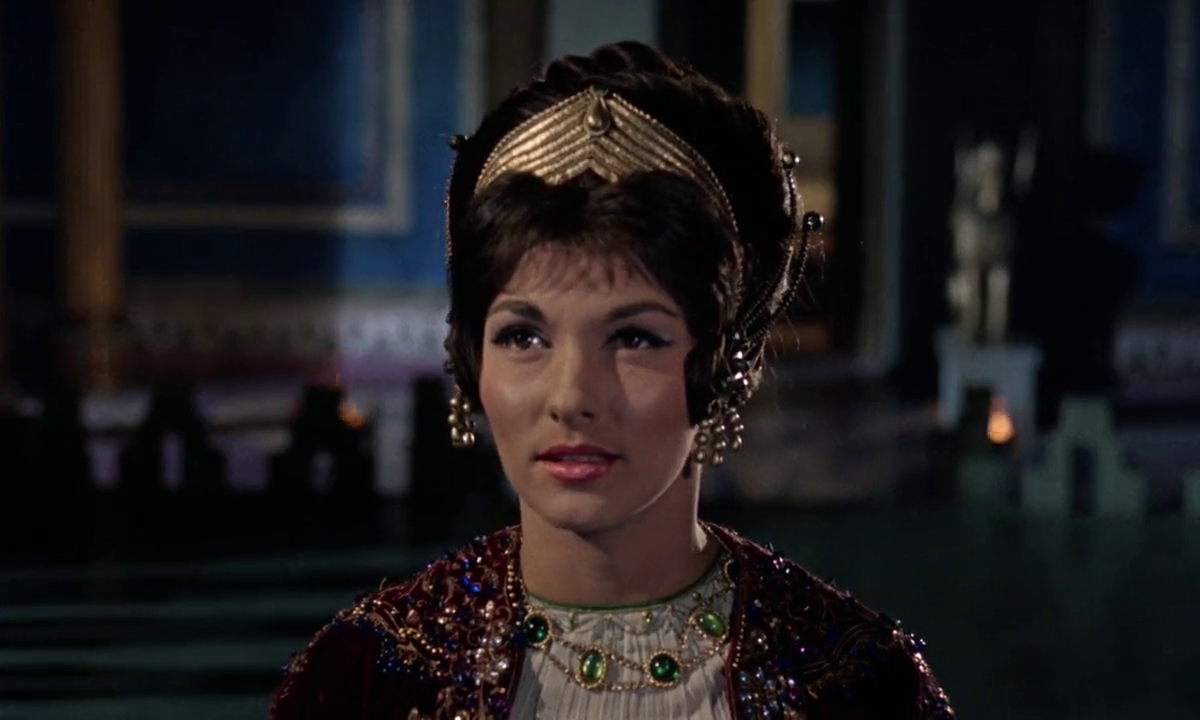
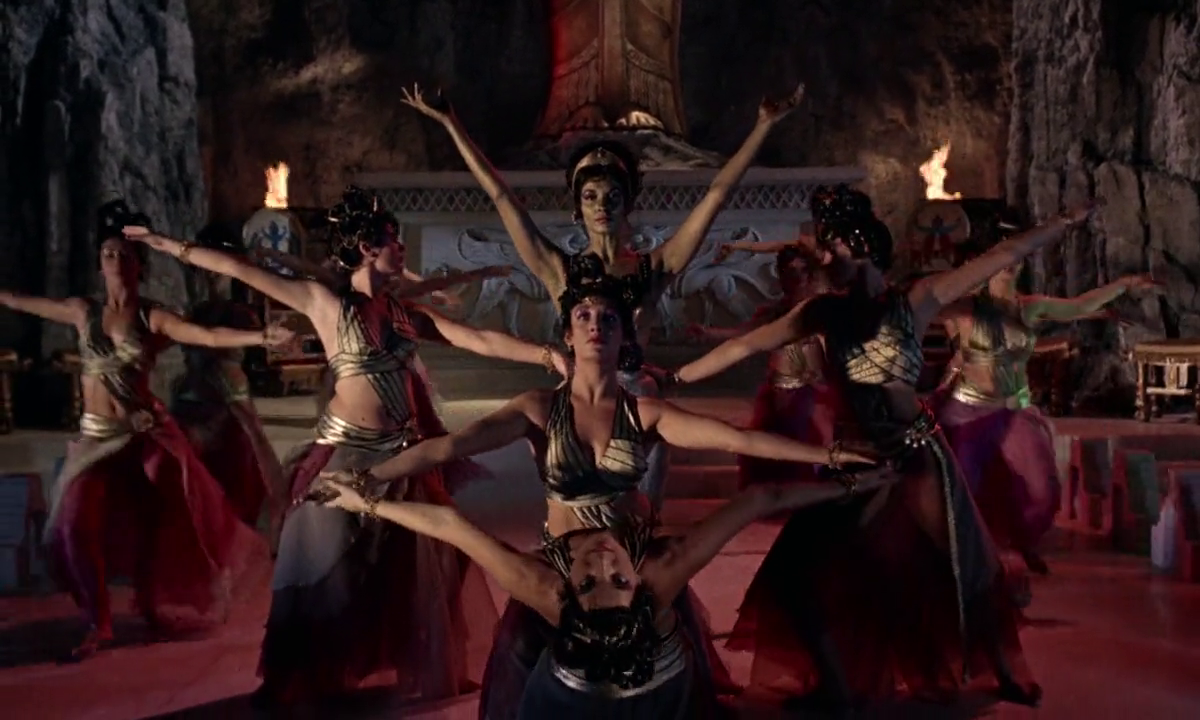


No comments:
Post a Comment